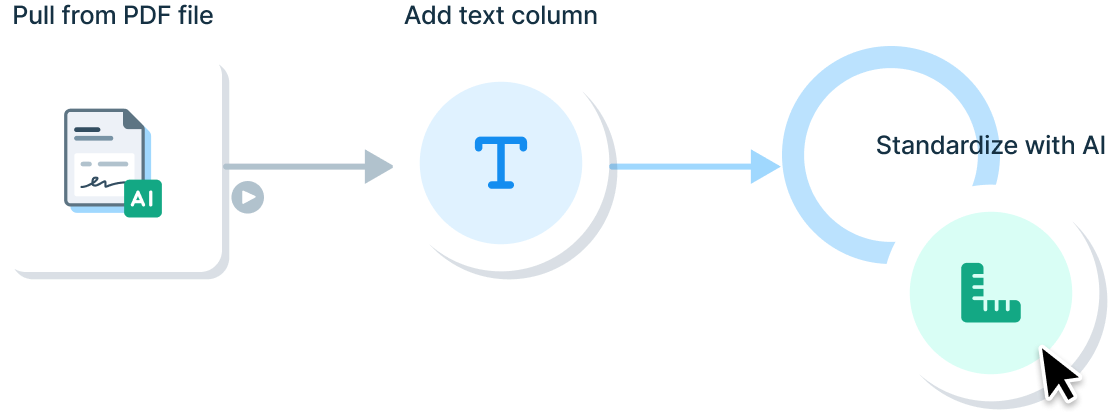






Create a single source of truth for your team by automating data pulls from anywhere – including APIs, spreadsheets, PDFs and emails.

Use Parabola’s simple drag-and-drop interface to clean, standardize, and manipulate your data any way you would in a spreadsheet — you can even use AI to parse your most unwieldy docs.


Document and collaborate on shared processes, centralizing your workflows and templates for the whole team.
Keep your reporting in the same platform as your logic to power ad hoc analysis and gut check your data. Share rich dashboards with other teams to provide context on your processes.


It's for those teammates who do the essential work — the manual stuff that keeps things running — and whose impact extends beyond their roles. Parabola was built to help them get out of their repetitive work and reach their full potential.
Learn more ->



Global Director of Business Operations,
Customs at Flexport
